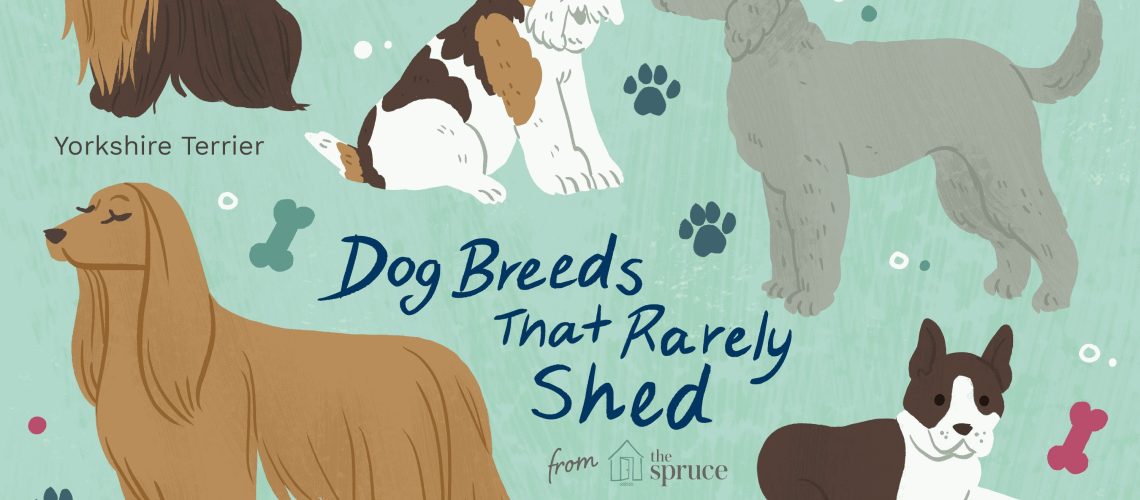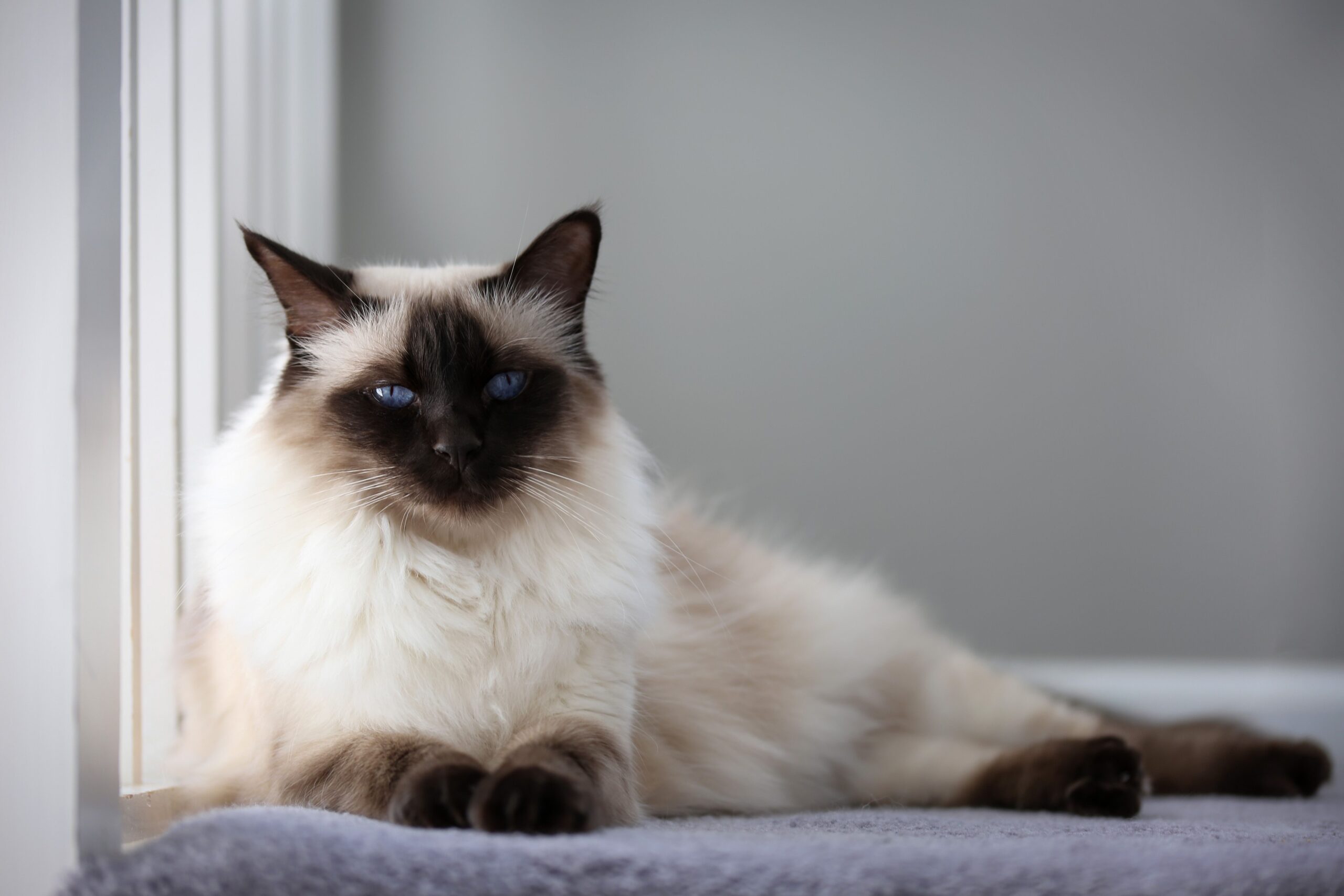Key Takeaways:
- These dog breeds are ideal for individuals or families with allergies or sensitivities to pet dander.
- They require less grooming and shed very little, reducing the amount of hair around the house.
- Some of these breeds have hypoallergenic coats that produce fewer allergens, making them a great choice for allergy sufferers.
- Their low-shedding coats often require regular brushing to prevent matting and keep their fur healthy.
- While they may not shed much, these dogs still require regular exercise, mental stimulation, and proper care to thrive.
Are you tired of constantly vacuuming up dog hair or dealing with allergies caused by shedding? Well, we have good news for you! In this article, we will explore the top 10 dog breeds that don't shed much. Imagine a life where your furniture stays fur-free and your sneezing fits become a thing of the past. By understanding these low-shedding breeds, you can find the perfect furry companion without sacrificing cleanliness or your health. So, get ready to discover some amazing dog breeds that will make your life so much easier and more enjoyable. Get ready to say goodbye to excessive shedding and hello to a cleaner, allergen-free home!
Dog Breeds That Don't Shed Much
1. Poodle
The Poodle is a popular dog breed known for its hypoallergenic coat, which means it doesn't shed much and is less likely to cause allergies in people who are sensitive to pet dander. Poodles have curly or corded hair that continues to grow, so regular grooming is necessary to prevent matting. They come in different sizes, including standard, miniature, and toy.
Poodles are intelligent and trainable dogs that make great companions for families. They have a playful nature and enjoy activities like swimming and retrieving. Despite their elegant appearance, poodles are also known for their friendly and outgoing personalities.
2. Bichon Frise
The Bichon Frise is a small breed that doesn't shed much and is considered hypoallergenic. Their fluffy white coats require regular grooming to prevent matting and keep them looking their best. Bichon Frises are known for their cheerful and affectionate nature, making them great family pets.
These dogs love to be the center of attention and enjoy spending time with their owners. They are generally good with children and other pets if properly socialized from a young age. Bichon Frises are also known for being intelligent and easy to train.
Why Some People Need Dogs That Don't Shed
Some people may have allergies or sensitivities to pet dander, which can cause symptoms like sneezing, itching, or difficulty breathing. For these individuals, owning a dog that doesn't shed much can greatly reduce the risk of allergic reactions.
In addition to allergies, some people may simply prefer a cleaner home environment with less pet hair on furniture and floors. Low-shedding dog breeds can help maintain a tidy living space and minimize the need for constant cleaning and vacuuming.
Understanding Shedding in Dogs and Why It Varies
Shedding is a natural process for dogs to get rid of old or damaged hair. It varies among different breeds and individuals. Some dogs shed year-round, while others have seasonal shedding patterns. The amount of shedding can also be influenced by factors such as climate, hormones, and overall health.
Dogs with double coats, like Huskies or Golden Retrievers, tend to shed more as they have a dense undercoat that helps regulate their body temperature. On the other hand, breeds with single coats, like Poodles or Bichon Frises, shed less because they lack an undercoat.
The Benefits of Owning a Dog That Doesn't Shed for Allergy Sufferers
Owning a dog that doesn't shed much can be particularly beneficial for individuals who suffer from allergies. These dogs produce fewer allergenic proteins found in their dander, saliva, and urine compared to heavy-shedding breeds.
By choosing a low-shedding breed, allergy sufferers may experience fewer allergic reactions or milder symptoms. However, it's important to note that no dog breed is completely hypoallergenic, as all dogs produce some level of allergens.
Grooming Tips for Low-Shedding Dog Breeds
Although low-shedding dog breeds don't require as much maintenance as heavy-shedders, regular grooming is still necessary to keep their coats healthy and prevent matting. Here are some grooming tips:
- Brush your dog's coat regularly to remove loose hair and prevent tangles.
- Trim your dog's hair as needed to maintain a neat appearance.
- Keep your dog's ears clean and check for any signs of infection.
- Brush your dog's teeth regularly to maintain good oral hygiene.
- Trim your dog's nails regularly to prevent them from becoming too long or causing discomfort.
Characteristics of Dog Breeds That Don't Shed Much
Dog breeds that don't shed much often have certain characteristics that contribute to their low-shedding nature. These may include:
- Hair that grows continuously instead of going through shedding cycles.
- A lack of an undercoat, which reduces the amount of loose hair they produce.
- Curly or wiry hair that tends to trap shed hairs, preventing them from falling out.
It's important to note that while these breeds may shed less, regular grooming is still necessary to keep their coats healthy and prevent matting.
Activities and Exercises Suitable for Low-Shedding Dog Breeds
Low-shedding dog breeds still require regular exercise and mental stimulation to stay happy and healthy. Here are some activities suitable for these breeds:
- Daily walks or jogs in the park to fulfill their exercise needs.
- Obedience training classes or agility courses to challenge their minds and improve their obedience skills.
- Interactive toys or puzzle games that provide mental stimulation when you're not able to actively engage with them.
Remember, each dog is unique, so it's important to consider their individual energy levels and preferences when choosing activities for them.
In conclusion, there are several dog breeds that don't shed much and can be great companions for those with allergies or who prefer less hair around the house. Some popular choices include the Bichon Frise, Poodle, and Yorkshire Terrier.
What is a good house dog that does not shed?
Whether you prefer small breeds such as Bichons and Yorkies, medium-sized dogs like Poodles and Portuguese Water Dogs, or larger ones like the Giant Schnauzer, you can find a hypoallergenic dog that doesn't shed and is also great for families.
What is the #1 hypoallergenic dog?
#1: Poodles are available in three different sizes, various colors, and have a wide range of personalities, from calm and dignified to lively and confident. Additionally, they are known for their intelligence and loyalty. Compared to other dogs, they also have a pleasant scent.
What dogs shed really bad?
Breeds of dogs that shed the most hair include Akitas, Siberian huskies, Bernese mountain dogs, Boston terriers, chow chows, corgis, Labrador retrievers, Pekingese, German shepherds, and Newfoundlands.
What is the most sold dog?
Here is the full list of the most popular dog breeds of 2022:
1. French Bulldogs
2. Labrador Retrievers
3. Golden Retrievers
4. German Shepherd Dogs
And many more breeds are included in this ranking. This information was last updated on March 15, 2023.
Which dog sheds more boy or female?
When a female dog is spayed, her shedding will be similar to that of a male dog. The thickness of a dog's coat does not necessarily indicate whether they shed more. If a female dog is spayed, she will shed the same amount as a male. However, if a female dog is not spayed and goes through her heat cycle, she will shed almost twice as much as a male.
Can you reduce dog shedding?
Regularly grooming your dog's coat is an effective method to minimize shedding in your home. There are various high-quality brushes designed to capture loose hair before it spreads. If your dog has longer fur, the ShedMonster De-Shedding Tool for medium to long coats could be the ideal choice for you.

















